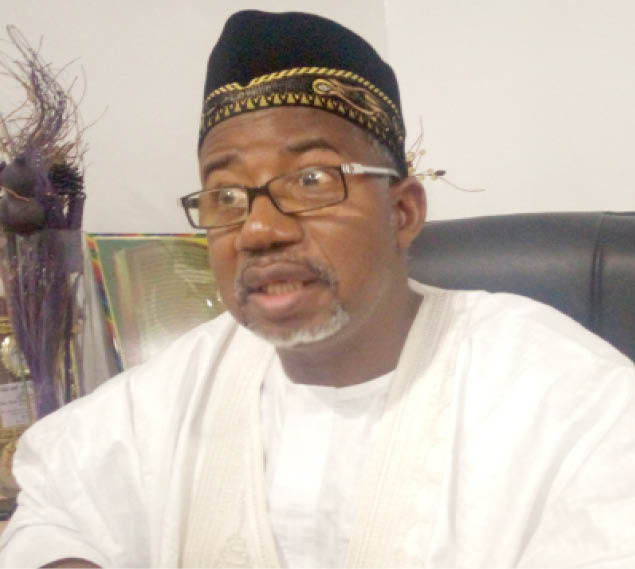‘What Bauchi is doing to reduce out-of-school children’
Though the Bauchi State government is reportedly making efforts to address the challenge of poor school infrastructure and teacher shortage, many classes remain overcrowded and millions of kids, especially in the rural areas, are still not attending school. An educationist, who would not want to be named, agreed that the issue of out-of-school kids, estimated […]

Governor Bala Mohammed
Though the Bauchi State government is reportedly making efforts to address the challenge of poor school infrastructure and teacher shortage, many classes remain overcrowded and millions of kids, especially in the rural areas, are still not attending school.
An educationist, who would not want to be named, agreed that the issue of out-of-school kids, estimated at 1.3 million, demands immediate attention from state authorities.
Policy makers in the state attribute the rise in number of children not attending school to many factors one of which is poverty and the influx of Internally Displaced Persons (IDPs) into the state which has continued to swell.
However, the authorities claimed that the state has devised ways to deal with the matter, including investing huge resources with set targets and time frame to increase enrolment.
UNICEF, United States Agency for International Development (USAID) and the Universal Basic Education Commission (UBEC), have at one time or the other, offered support to the state to handle some of the challenges facing education.
Recent intervention was a multimillion-dollar 2019 Schools Improvement Project by the World Bank which would be accessed by 1,320 schools in five LGAs in the state.
At a brief ceremony recently, Governor Bala Abdulkadir Mohammed of the state presented a cheque of N500,000 to each of the beneficiary schools.
He pledged to improve funding of education as part of efforts to tackle the menace of out-of-school children in the state.
The state coordinator of the project, Muhammad Datti Umar, disclosed that, the 1,320 recipient schools were spread across Zaki, Shira, Ganjuwa, Katagum, Darazo and Toro LGAs.
He said the project would cater for minor issues such as renovation, rehabilitation of twin desks and repair of water points.
The coordinator said the programme was also designed to strengthen public schools operation through good governance and accountability for sustainable educational development in the state.
Bauchi State government has also accessed a N2 billion education intervention fund from the Universal Basic Education Commission (UBEC).
Executive Secretary of UBEC, Dr Hamid Bobboyi, disclosed this when he paid an advocacy visit to Governor Mohammed at the Government House, Bauchi.
Bobboyi pledged to establish the Northeast ICT Model School in Bauchi. The foundation was laid few days later at a 6.4 hectares land provided by the government along Gombe Road, Bauchi.
He explained that the school comprised of special education unit, nursery, primary and junior secondary schools as well as facilities to train teachers, adding that the school would be connected to the internet to access online materials to help the pupils acquire sound and qualitative education.
Minister of Education Malam Adamu Adamu was represented by the Minister of State for Education, Mr Chukwuemeka Nnajiuba, at the foundation laying ceremony of the school.
Governor Mohammed expressed confidence that the ICT Model School would assist in the provision of qualitative and sound education and assured the federal authorities of the support of his administration for the education sector.
Again the state government has obtained another $3 million for the implementation of a federal intervention project – the Better Education Service Delivery for All (BESDA) in the state.
Governor Mohammed disclosed this at the launch of the programme at Alkaleri Local Government Area, where he said N53, 056,200 was approved for the provision of teaching and learning materials.
The governor explained that government had released over N436 million as part of its support to the programme being run by NEI- plus, a USAID intervention programme in the state.
He observed that if fully implemented, the project would reduce the level of illiteracy in the selected states through tracking and mopping up of out-of-school children and sending them to classrooms.
An educationist, Malam Aliyu Umar Misau, said if the funds were used for the purposes they were meant, education would have been better off in the state.
According to him, there were many misplaced priorities in the utilisation of education funds which undermined the intended goals.
Misau who was a former Academic Secretary and Registrar at the Ahmadu Bello University, Zaria, said he was at a time involved in donor funded education projects in the state.
“It was a multi-million Naira project but to my surprise, the money allocated to publicity baffled me and I was so angry. They budgeted N20 million for advocacy visit to each of the 20 local government areas.
“I said no, this is not right. We must not show the donors that we are not serious. With N20 million you can do four schools, N5 million each, but they want to allocate the money for publicity. That is the problem,” he said.
Misau said there were many unethical practices in the utilisation of donor funds during implementation.
